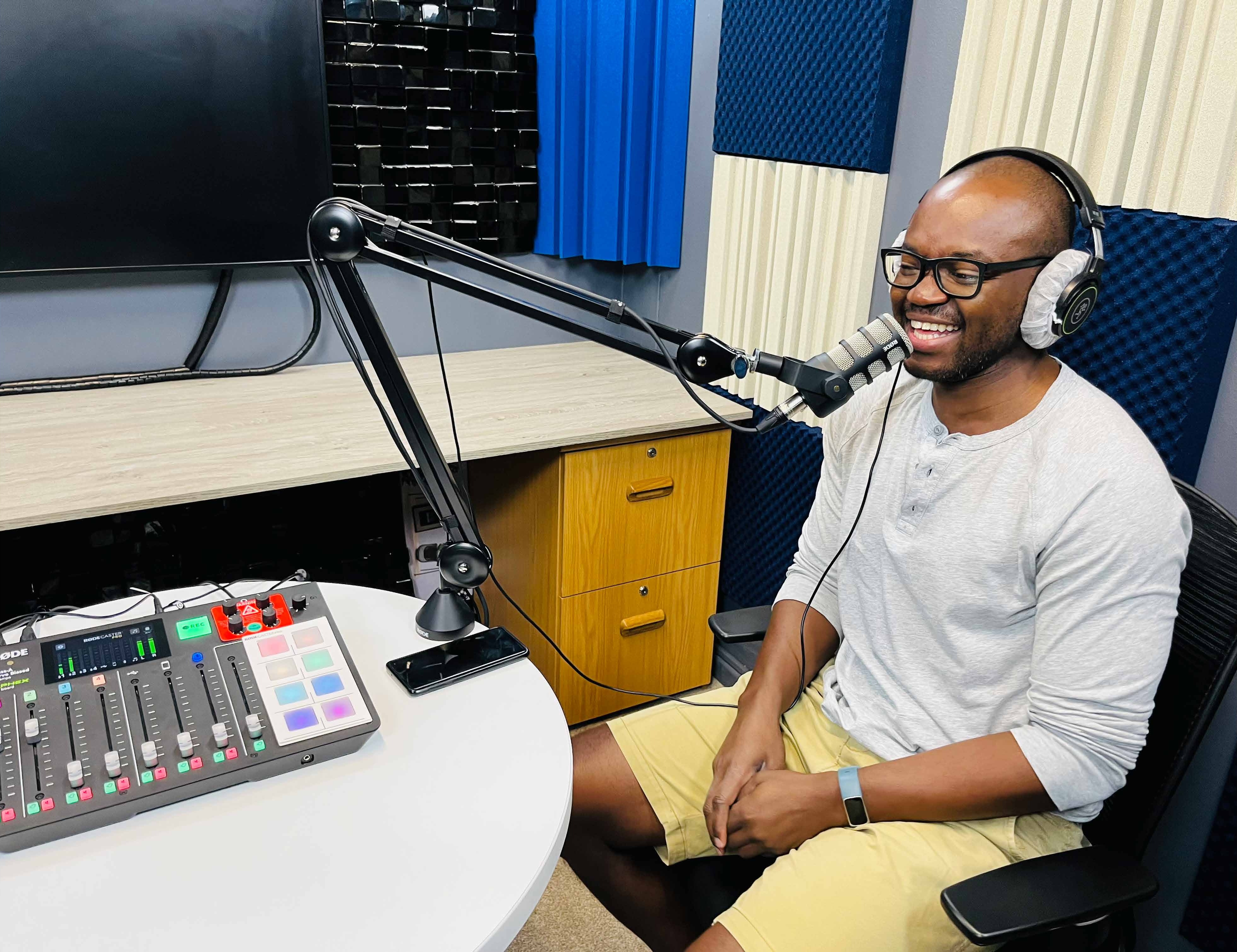
People have been obsessed with audio interviews for over a century, when the first talk radio broadcasts made it possible to listen in on interesting conversations. In recent years, the advent of the podcast has allowed a new generation of listeners to fall in love with talk. Through the power of the internet and smartphones, podcasting has made it possible to listen in anytime, anywhere, at the press of a button.
Still, it took a global pandemic to fully catalyse the medium. In those days of extreme isolation, when so many of us rarely spoke to anyone outside our households, podcasts offered a way to join an endless number of fascinating conversations between people from all walks of life and on any topic imaginable. Overnight, it seemed we all had our favourite shows, channels, and hosts that we were tuning into on a regular basis.
But as we learned during our design thinking interviews for developing the DBIA cases in 2022, the lure of podcasts often goes far beyond entertainment or social connection. The researchers, managers, and entrepreneurs we interviewed told us that podcasts were a great way to absorb important information about their industries, research fields, and African business in general because it was less taxing than reading and could be squeezed into time set aside for other tasks. In the course of a day jam-packed with work and family obligations, podcasts allowed our interviewees to learn something new on the drive home, while doing chores, or right before going to bed.
On the production side, we were impressed by the advantages of podcasts for advancing local business cases. With podcasting, we can produce and distribute business stories much faster, and at lower cost, than traditional publishing routes (cases can take YEARS from research to final publication in a journal or case platform). And ultimately, that expedience and cost efficiency make the medium a far better fit for our market because we can share stories directly with the people who want and need them most, for free.
Truth be told, we had been eager to incorporate multimedia into our cases at the Case Writing Centre since our inception in 2017, but we just had not found the right opportunity. So when the GSB installed a podcast studio on campus in 2022, just as we were designing an innovative new case series for lifelong learners, we knew we it was finally time for a case-based podcast. We had lots of ideas for how a Doing Business in Africa podcast could work, but one approach seemed especially important for our prospective listeners.
Turning listeners into researchers
One of the biggest challenges of writing a traditional business case is faithfully translating the experiences, thoughts, and opinions of the protagonist(s) to the page, and in a way that connects with student readers. Case writers and researchers have the immense privilege of sitting down, usually face to face, with the managers, leaders, and decision-makers from the organisations we study. We get to hear their voices, know their personalities, and observe them in action in ways that help us make sense of their situation and challenges. Our job is to ensure that readers get a similar experience while reading a case, which is a tall order when you have to collapse all of the sensory and intuitive information uncovered in the research process into a single document.
But what if case readers could hear this information for themselves? That brings us to The Dilemma Podcast. Each episode features an interview with a senior decision-maker (our protagonist) from the case company about – you guessed it – the central business dilemma they are currently battling. Each case centres on a different business issue entrepreneur strategy, social innovation, people management, and individual leadership.
As part of our off-air preparation, our conversations with companies start with the age-old case question, “What is keeping you up at night?” But in the podcast conversations, our protagonists pull us into all kinds of interesting business and organisational dynamics along the way to answering this question. And our conversations are about more than just getting leaders to report on industry trends and business issues; we think their individual perspectives and experiences matter to our listeners. So we also take time tease out the protagonist’s own story – their personal history and professional journey – to understand how they think about their business, observe how they approach challenges, and learn from their individual examples.
In the context of the deconstructed case for the DBIA series, The Dilemma is not designed to give listeners the full analysis of a business challenge, with all the context that requires. Instead, this podcast should stir listeners to apply their own experiences and expertise as they learn about a real, pressing African business problem. In this way, we invite the listener to become the researcher: to sit in on the interview and make sense of the dilemma with us.
“In their own words”
When we talk about what it is we love about the DBIA series – what we think makes it impactful – the opportunity to hear African business leaders discuss relevant issues “in their own words” features in our top three. (In our last post, we talked about the second reason – the value of a deconstructed format with multimedia sources – and in upcoming posts, we will talk about the third reason, making the cases open source.)
In our experience writing cases for the classroom, the cases that have the biggest impact on students – the ones they remember and learn the most from – are those that they take seriously because they understand that the stakes, and people, are real. Nothing makes that reality clearer than hearing protagonists tell their stories in their own words. Except, perhaps, seeing the protagonists tell these stories. But video is another frontier, one we have yet to approach. For now, you'll have to get your visual engagement from our DBIA infographics, Exhibit A. More on that in our next post. In the meantime, happy listening!
Listen to the podcast
Check out all four podcast episodes in the DBIA collection.
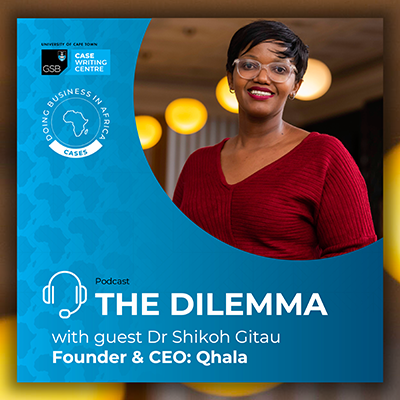
|
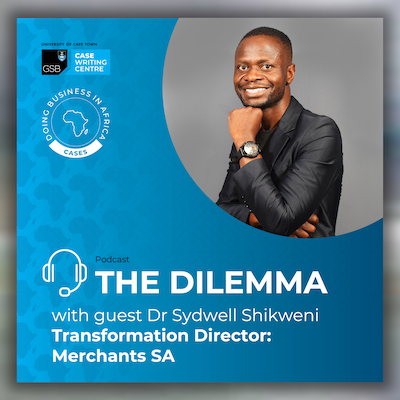
|

|
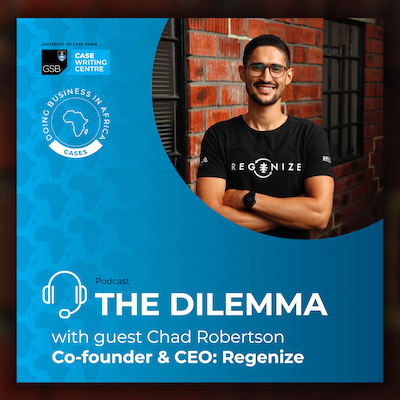
|
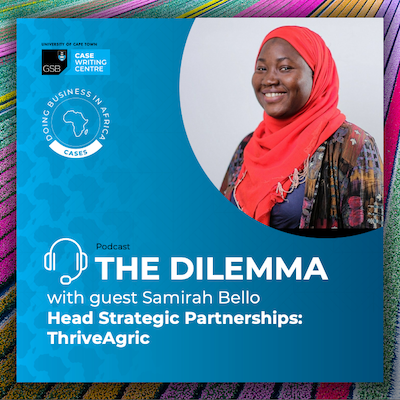
|
NEXT UP: A look behind the DBIA infographic feature, Exhibit A















